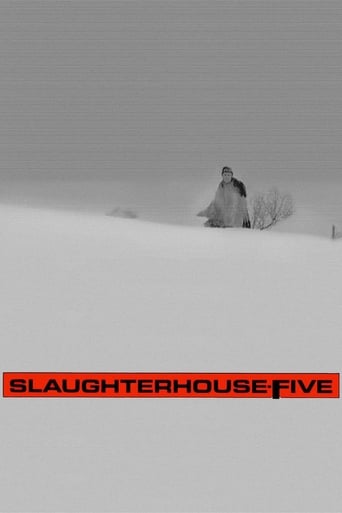Billy Pilgrim lives —from time to time to time…
"Slaughterhouse-Five," released in 1972 and produced by Universal Pictures and Vanadas Productions, is a cinematic adaptation of Kurt Vonnegut's seminal novel. Directed by George Roy Hill, the film delves into the surreal and poignant journey of Billy Pilgrim, portrayed by Michael Sacks. The narrative weaves through time, capturing Billy's experiences as a prisoner of war during the bombing of Dresden, his mundane life as an optometrist, and his bizarre abduction by the alien Tralfamadorians. The film's innovative structure and thematic depth reflect Vonnegut's unique blend of science fiction and anti-war sentiment, making it a compelling exploration of the human condition. The film's visual style and pacing are instrumental in conveying the disorienting nature of Billy's experiences. Cinematographer Miroslav Ondříček employs a mix of stark realism and dreamlike sequences to differentiate between Billy's various timelines. The scenes set in Dresden are hauntingly vivid, capturing the devastation and chaos of war, while the Tralfamadorian sequences are rendered with a whimsical yet eerie aesthetic. This juxtaposition not only enhances the film's narrative but also underscores the absurdity and futility of war, a central theme in Vonnegut's work. "Slaughterhouse-Five" also benefits from strong performances, particularly from Michael Sacks, who effectively embodies Billy's passive yet profound journey through time and trauma. Supporting actors, including Ron Leibman as Paul Lazzaro and Valerie Perrine as Montana Wildhack, add depth and complexity to the film's ensemble. Their interactions with Billy highlight the absurdity and randomness of life, further emphasizing the film's existential undertones. The film's soundtrack, composed by Glenn Gould, complements the narrative with its minimalist and contemplative tone, enhancing the overall emotional impact. In its adaptation of Vonnegut's novel, "Slaughterhouse-Five" remains faithful to the source material while offering a unique cinematic experience. The film's exploration of time, memory, and the human capacity for resilience in the face of unimaginable horror resonates with audiences, making it a timeless piece of cinema. Produced by Universal Pictures and Vanadas Productions, this film stands as a testament to the power of storytelling in confronting the realities of war and the search for meaning in a seemingly indifferent universe.
Año1972
Página principal
Presupuesto3200000$
Duración100 minuto
GénerosDramaCiencia ficciónBélica
Países de producciónUnited States of America

